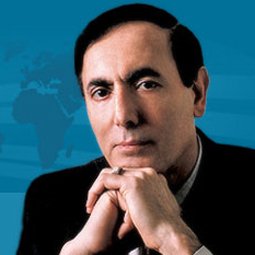I was in Israel when Trump made his announcement recognizing Jerusalem as Israel's capital. Initially, I thought Israelis would pour out into the streets celebrating this "historic" moment, but other than small chatter here and there, and some expressions of jubilation, not much else gripped the nation. On the Palestinian side, relatively small demonstrations broke out in the West Bank and Gaza, which continued in the following days with limited violence, and condemnation of the US declaration was heard from most Arab and Muslim capitals. This is pretty much where things stand today.
Perhaps it is too early to draw a definitive conclusion, but based on everything I have seen and heard while in the area and since then, not much more is likely to happen. The question that many people are asking is why, and could anything positive come out of this declaration?
About a year ago, when Trump initially stated his intention to relocate the American Embassy from Tel Aviv to Jerusalem, I predicted that the move would have major consequences and may well destroy the prospect of a negotiated peace agreement between Israel and the Palestinians based on a two-state solution.
Yes, this would have been the case had Trump's declaration been phrased in a manner that included East Jerusalem directly or indirectly as part of Israel's capital, and ignored the need for a two-state solution. But this is not what happened. In fact, what he stated clearly implied that East Jerusalem was not part of the equation.
Regardless of how strongly I disagree with Trump's overall foreign policy, he was correct to state that: "The record is in. After two decades of waiver [to relocate the US embassy to Jerusalem] we are no closer to a lasting peace between Israel and the Palestinians." Indeed, the final status of Jerusalem never constituted a make-or-break issue in any previous negotiations. Thus, there is no reason to assume that declaring Jerusalem as Israel's capital affects East Jerusalem, when in fact everything else he stated -- implicitly if not explicitly -- was limited to West Jerusalem.
"Jerusalem," he said, "is the home of the Israeli Parliament, the Knesset, as well as the Israeli Supreme Court. It is the location of the official residence of the Prime Minister and the President. It is the headquarters of many government ministries." All of these institutions are located in West Jerusalem, and none are likely to be relocated to East Jerusalem. The Trump administration made it clear to the Israelis that any such move will not be tolerated, as it will cause undue turmoil that would completely undermine the US' efforts to advance the peace process.
Trump further noted in his declaration that "Jerusalem is today, and must remain, a place where Jews pray at the Western Wall, where Christians walk the Stations of the Cross, and where Muslims worship at Al-Aqsa Mosque." This in no way is any different from what has been on the negotiating table in every set of peace talks since the 1993-1994 Oslo Accords. In fact, during the Olmert-Abbas negotiations in 2008, a basic agreement was reached on the future of Jerusalem along these lines to preserve the unity of the city.
Moreover, it is important to emphasize the fact that nearly 30 years ago the US leased land in West Jerusalem on which to build the future American embassy. It was not contemplated then and it is not expected now that the US embassy should or would be built in East Jerusalem.
No Israeli government, including the current one led by Netanyahu, has requested to build the American embassy on the East side of the city. Thus, the future building of the US embassy in West Jerusalem does not constitute recognition of Israel's sovereignty over East Jerusalem.
From the Trump administration's perspective, there was nothing in his statement that is contrary to the premise that Jerusalem will still end up the capital of both Israeli and Palestinian states. In fact, it may engender a new momentum toward the resumption of peace negotiations, as the Palestinians now realize the longer they wait, the more ground they are likely to lose. "I've judged this course of action" Trump said, "to be in the best interests of the United States of America and the pursuit of peace between Israel and the Palestinians. This is a long-overdue step to advance the peace process and to work toward a lasting agreement."
Further in Trump's statement, he said: "We are not taking a position of any final status issue, including the specific boundaries of Israeli sovereignty in Jerusalem, or the resolution of contested borders. Those questions are up to the parties involved." [emphasis added] He further stated that "The United States would support a two-state solution if agreed to by both sides." Neither of these assertions contradict in any way similar statements made by previous American administrations. Trump knows that the two-state solution remains the only practical option.
Even though President Abbas criticized Trump for his declaration, and pronounced the US as being biased and no longer an honest broker, the US (especially Congress and most previous administrations) has in fact always been biased in favor of the Israelis. That said, Abbas and all other heads of Arab states know that only the US can exert the kind of pressure on Israel to exact compromises central to reaching an agreement.
In return for Trump's announcement, Netanyahu quietly conceded not to expand the settlements outside the three blocks along the 1967 borders, and also to engage in confidence-building measures, especially joint economic development projects with the Palestinians.
Abbas may now be dismissive of the US' critical role in negotiations with Israel, but neither he nor his successors can afford to ignore the US' role in future negotiations and expect a peace agreement with Israel that meets the Palestinians' basic requirements.
(Note: You can view every article as one long page if you sign up as an Advocate Member, or higher).






